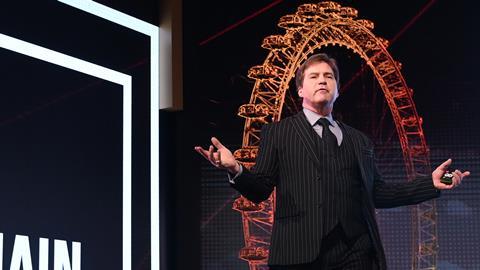Dr Craig Wright was accused of ‘forgery on an industrial scale’ in a case that ended yesterday when the High Court ruled he is not the inventor of bitcoin. The judge found his adversaries’ evidence ‘overwhelming’
Six weeks of hearings in a case that gripped the global cryptocurrency community came to an abrupt end yesterday, when Mr Justice Mellor declared that Dr Craig Wright is not ‘Satoshi Nakamoto’, the pseudonymous inventor of bitcoin.
Such a ruling had been sought by a group of mainly US-based software developers, the Crypto Open Patent Alliance (COPA). However, the extempore verdict – reasons will be set out in a written judgment – will not bring to an end the torrent of litigation surrounding computer scientist Wright’s extraordinary claim.
The issue is of more than academic interest: the verdict came in a week in which the value of a single bitcoin reached a record £57,000. Some 20 million bitcoins (out of a mathematical ceiling of 21 million) have so far been ‘mined’ – meaning the cryptocurrency is theoretically worth half the UK’s annual GDP.
Closing submissions in Crypto Open Patent Alliance v Dr Craig Steven Wright ran to more than 360 pages. ‘Thank you very much for your hard work, I think I’ve read all of them once,’ the judge observed at the outset.
Wright argued that he has the required skills, knowledge and qualifications to have created bitcoin - and that allegations of forgery are based on misunderstandings of his working practices and bias on the part of expert witnesses. No other credible candidate has emerged since ‘Satoshi’ announced his departure from the bitcoin scene in 2010.
But, for the claimants, Jonathan Hough KC told a crowded Court 26 of the Rolls Building that Wright’s claim is based on forgery on an industrial scale – and amounts to abuse of the court systems of several jurisdictions to perpetrate a fraud. ‘Dr Wright has committed serious fraud on this court in defending this claim. Dr Wright has lied and lied and lied,’ Hough said.
'This is not some private matter in which a person has produced a false will or invoice to gain a financial advantage. It is the deliberate production of false documents to support false claims and use the courts as a vehicle for fraud'
Jonathan Hough KC
Wright’s forgeries persisted even to the course of the trial itself, Hough continued, alluding to an email purportedly sent by Wright’s former solicitors, London specialist firm Ontier, to his current team, national firm Shoosmiths. When it emerged that the email had been backdated, Wright claimed that it had been spoofed by an ‘unknown bad actor’ who had been bugging his home. Hough dismissed this as Wright’s ‘most ridiculous cover story of all’. Ontier declined to comment.
The court heard that this was just one of several occasions when Wright had attempted to blame his legal advisers - successively, Ontier, Travers Smith and Shoosmiths – when inconsistencies in his evidence were pointed out. Under cross-examination, Wright told the judge he had been ‘a complete arse’ in a row with Shoosmiths over the production of evidence.
Hough alleged that blaming lawyers was merely a tactic to cloak Wright’s actions behind professional privilege. But the legal principle that no adverse inference may be drawn from a party maintaining privilege does not bar the court from considering the plausibility of a story, Hough said.
Wright’s evidence also contained repeated attacks on the expertise and impartiality of COPA’s expert witnesses, Hough said. On Wright’s charge that COPA’s solicitors, international firm Bird & Bird, had influenced the content of an expert witness report casting doubt on Wright’s initial ‘reliance documents’, Hough said: ‘It is acceptable for lawyers to produce the first draft of a report for review, editing and preparation. The allegation that this undermined [the expert’s] independence is unfounded.’
Arguing for injunctive relief, Hough added: ‘If even some of COPA’s allegations of forgery are made good, this represents a serious abuse of the court systems of several jurisdictions. This is not some private matter in which a person has produced a false will or invoice to gain a financial advantage. It is the deliberate production of false documents to support false claims and use the courts as a vehicle for fraud.’
In his written closing submission, Wright had claimed the forgery allegations were ‘ultimately sub-issues to the broader identity issue’. He invited the court not ‘to trouble itself with the complex and lengthy detail of COPA’s forgery allegations’. Meanwhile, he said COPA was misconceived in its quest for a negative declaration. ‘The courts rightly do not entertain academic disputes that do not engage legal rights or interests,’ the submission stated.
It seems the judge disagreed. Finding COPA’s evidence ‘overwhelming’, he yesterday ruled that Wright is not the author of the bitcoin white paper, is not the person who operated under the pseudonym Satoshi Nakamoto and did not create the initial versions of the bitcoin software.
For what happens next, we must await the written judgment and any sanctions it contains.
This article is now closed for comment.





































2 Readers' comments